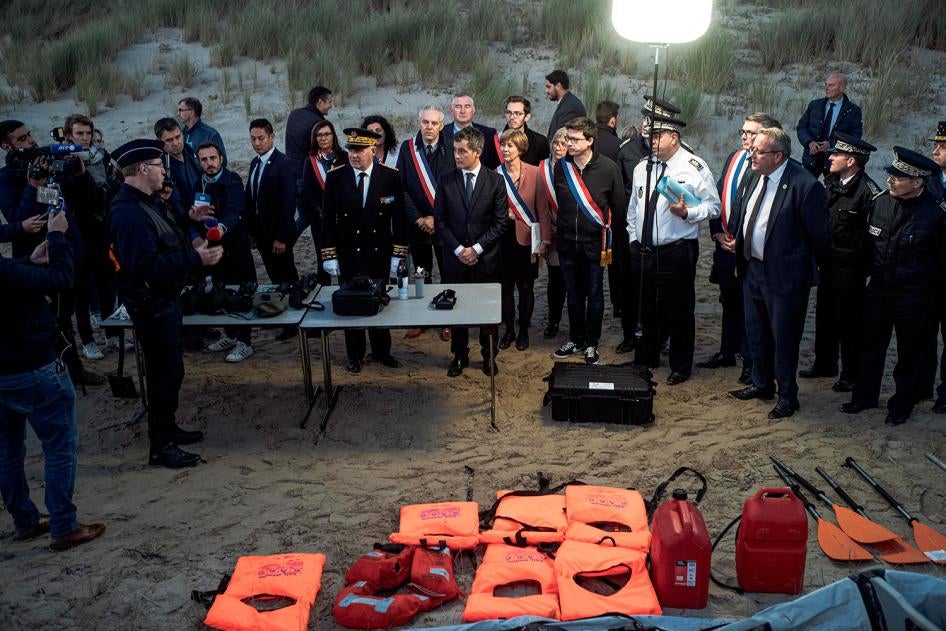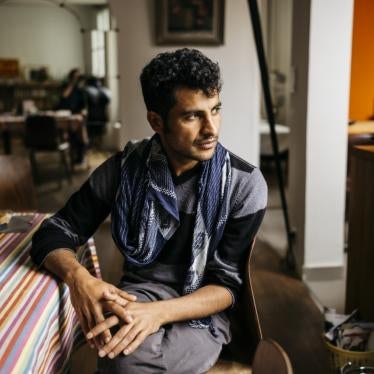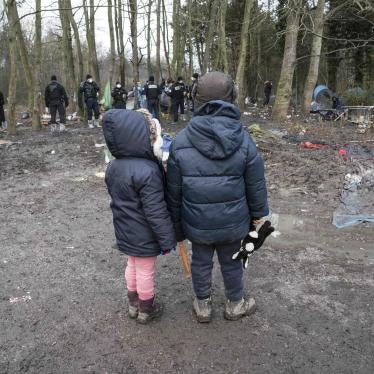Two days after Human Rights Watch, on October 7, published a report documenting the degrading treatment of migrants in and around Calais by French authorities, Gérald Darmanin, France’s Interior Minister, while visiting the Dunkirk region, publicly rebuffed the report’s findings as "patently lies." "Not a single policeman or gendarme on the coast has been prosecuted," he claimed, and went on to praise the "humanity" of police towards migrants.
Let me set the record straight: Our report is based on extended field visits to Calais, Grande-Synthe and surrounds between October 2020 and July 2021. We interviewed 60 migrants - including 40 unaccompanied children- as well as aid workers and examined dozens of videos, photos, and news reports. The evidence confirms the facts: abusive practices by the authorities and the police have not only persisted but escalated since the dismantling of a sprawling camp on the edge of Calais five years ago.
Abuses include near-constant police harassment, frequent and often brutal forced evictions of encampments, confiscation and regular destruction of tents, tarps, and meager personal belongings, and the obstruction of humanitarian assistance.
For years, the French Rights Defender has denounced the "tracking" of migrants in the Calais area, the "degrading and inhumane treatment" they are subjected to, and their resulting "state of physical and mental exhaustion." Human Rights Watch and others have also repeatedly documented police harassment of aid workers.
This police abuse is part of a broader official policy to deter migrants from traveling to and gathering in northern France by making their lives as miserable as possible.
Also, the minister's assertion that no member of the police forces intervening on the northern coast has been prosecuted is false: the criminal court of Boulogne-sur-Mer recently convicted a riot police officer for the violent assault of a volunteer during a camp eviction in Calais. His suggestion that lack of accountability establishes an absence of abuse is deeply disingenuous: the abuses are committed against people without legal status, who want to survive to reach the UK as quickly as possible, and will inevitably be reluctant to lodge complaints against the police.
Rather than deny the facts, Darmanin should renounce his government’s current approach to migration which not only fails to deter new arrivals or dangerous irregular crossings of the English Channel, but above all inflicts intolerable suffering. The result – as intended – is far from humane.










